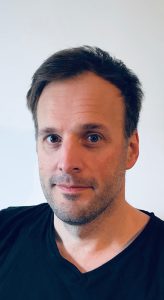
How did you get involved in the FUTURED project?
I was encouraged to apply for the Ph.D. research fellowship by FUTURED`s project leader, Catharina Christophersen. I immediately found the project relevant, bold and exciting. I especially got inspired by the overall aims of exploring and challenging the status quo in Norwegian generalist music teacher education. It is such an exciting timing to execute such a project, given the new reform where generalist teacher education transforms and advances into a mandatory 5-year programme with an integrated master simultaneously with curriculum changes in Norwegian compulsory schools. Altogether, this will impact the whole chain of educational structures and school programs. I am excited and motivated to get insight into the music student teachers voices, and perspectives on their education, their background, competence, beliefs, and their motivation for choosing the teacher profession. After all, they are the next generation of teachers in Norway. I am very happy to be a part of FUTURED to develop both personally and professionally.
How would you describe what you are doing in the FUTURED project?
I am doing a mixed-method study in WP1. First, I did a quantitative phase where I developed and executed a national survey with all the generalist preservice music student teachers from 2017 until present. Second, I moved on to a qualitative phase with a case study targeting key respondents from the survey to get a deeper qualitative and explanatory insight. These phases will lead on to a greater analysis where I triangulate findings from this study with prior research on generalist music teacher education from the perspectives of the teacher educators, utilizing a 3rd generation Cultural Historical Activity Theory framework.
What do you find interesting about the work in your study?
Both learning new methodological approaches as well as using different theoretical lenses to analyze and explore the perspectives, insights, and data, is very interesting. To be in a project group with such competent colleagues that explore different aspects of the generalist music teacher education opens for good philosophical discussions and broadens the view of every work package. It is such a fulfilling, and at the same time challenging project with a rich learning outcome.
What is your favorite aspect of your FUTURED work?
I guess that is to elevate student teachers’ voices, and triangulate these with previous research on generalist teacher education programs, ideology, curriculum and practice. I am keen on highlighting vital aspects in this field for understanding the current setting. Given all the stakeholders represented in the field, it is a multifaceted, and complex setting. I also want to be an agent for bottom-up changes. Mapping and doing a study on preservice generalist music teachers is an exciting project since it has never been done in the Norwegian context before. Therefore, I am contributing to new knowledge and implications in the field of music education.
This interview is taking place in the last year of the project. Where are you headed in the future?
Hopefully I am into new exciting research projects as this when my thesis is done. And of course, I want to teach and explore music and educational aspects with colleagues, music students and student teachers.